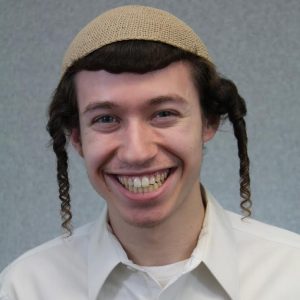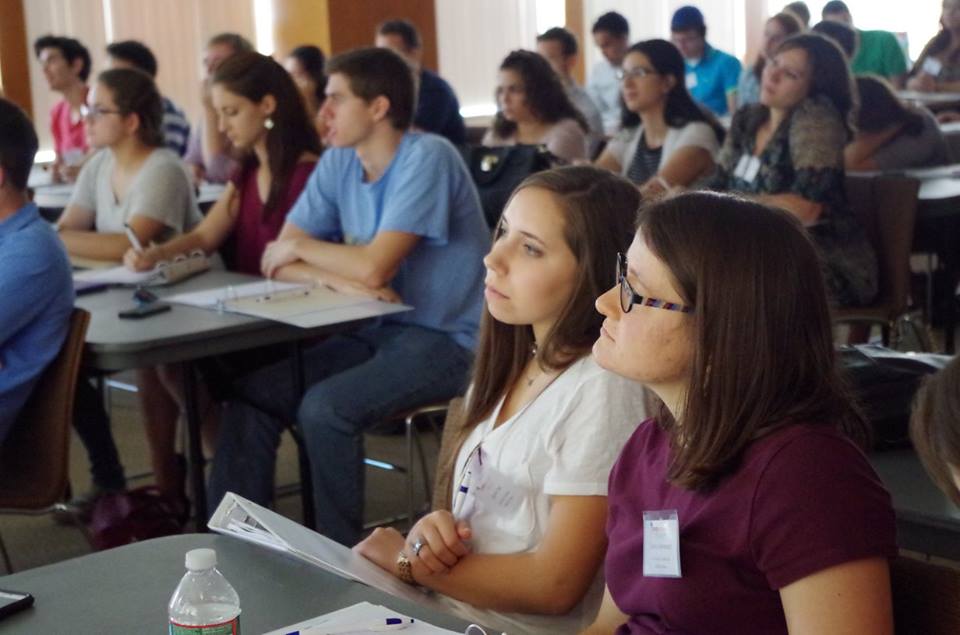
The last months of senior year are a daunting period. Filled with the pressures of life after graduation, applying for work, pursuing additional degrees, and finding a place to live, the uncertainties of the ‘real world’ have most seniors avoiding the dreaded question of their future plans. As a recent graduate of Binghamton University, this process is all-encompassing as my Facebook news feed and social circles discuss recent acceptances to master’s programs at prestigious universities and impressive job offers at Fortune 500 corporations.
The process unfolding around me has been viewed not as participant, however, but as an audience member, the enthusiastic fan at a sports game who knows he will never play in the big leagues. While I watch those around me complete the GRE and undergo job interviews, my year instead consisted of weekly visits to the gym, interviews with army officers, and intensive Hebrew learning. This summer I leave behind family, friends, and the familiarities of North American life as I make aliyah (Hebrew for immigration to Israel), building a new home in the Jewish state and enlisting in the Israel Defense Forces.
Such a radical deviation from the ordinary path set before most college graduates naturally induces a number of questions. What are you running away from? What about your livelihood? How could you do this to your parents after all they provided you? The magnitude of the decision to leave the comforts of home and the communities that raised me to travel thousands of miles away and join a foreign army is not taken lightly or made hastily. In contradiction of those who challenge my appreciation for family and friends, the decision to make aliyah is made not in spite of these individuals, rather it is a lifetime dream that has been formed and nurtured through such people and the experiences they afforded to me.
Growing up in a home with a strong love of Israel and appreciation for Jewish education, the significance of the State of Israel to an often lachrymose picture of Jewish history became clear at a young age. Through the Zionism received from my parents coupled with formal and informal education about Israel at school and summer camp, I grew to understand just how remarkable was the Jewish return to Zion and the renewal of our people’s self-determination. Subsequent visits to Israel including a gap year after high school deepened this burgeoning relationship, opening my eyes to the country’s diverse people, who despite cultural and religious differences, built an open and vibrant society where personal freedom is championed and criticism is welcomed, if not encouraged.
Upon entering college, my relationship with Israel took yet another form as I sought to share my past experiences in Israel with fellow students through Israel advocacy work. As forces on campus attempted to disseminate misinformation about the Jewish state, I worked alongside a team of passionate students to present the true picture of Israel using the valuable strategies and resources that I received as a CAMERA Fellow. At its Annual Student Leadership and Advocacy Training Conference before the start of the school year, CAMERA trained its fellows to address and correct the lies often spread about the Jewish state on college campuses through letter writing and other mediums.

Training its fellows in Israeli history and current events through a range of prominent speakers along with a series of writing workshops to build opinion pieces geared toward campus publications, I left the conference with the skills necessary to convey our message effectively on campus, particularly in campus media. United by a common goal of sharing Israel’s story, the CAMERA on Campus staff as well as the new global network of CAMERA Fellows established at the conference became a powerful sounding board during my time in college, offering advice on how to tackle specific incidents such as biased professors or how to ensure that our limited words in an editorial piece are used most effectively.

A precursor to my future plans to enlist in the IDF and defend Israel in a physical manner, the skills acquired at pro-Israel conferences and summits placed me in the trenches of Israel’s defenses on campus in the battle to shape college students’ perception of Jewish history. As Students for Justice in Palestine attempted to rewrite the establishment of the State of Israel and push a fictitious narrative surrounding Israel’s efforts to ward off decades of deadly terrorism, I together with other like-minded Israel advocates ensured that the truth was always easily accessible. When the anti-Israel group held a protest on the first day of classes condemning Israeli actions in Operation Protective Edge, a larger continent of Jewish students and their allies countered the libels by highlighting the party truly responsible for the summer’s bloodshed, the terror group Hamas. The hate and lies experienced during my time as a college student imbued in me a deep sense of responsibility for the Jewish state and her people which contributed greatly to my eventual desire to defend Israel as a soldier in her military.
At eighteen years old, Israeli teenagers are required to enlist in their country’s military due to Israel’s policy of conscription. Choosing to volunteer in the IDF as a 22 year-old American therefore comes as a shock to many Israelis who do not understand why one would trade the luxuries of the United States for an opportunity to be ordered around by a commander two years their junior. As surprising and unusual the choice may appear, my aliyah and enlistment in the IDF is a natural process, a decision made not in spite of those around me, but rooted in the very experiences and values taught by family, friends, Jewish education, and Israel activism. As I arrive in Israel today, I complete a chapter in my life 22 years in the making, fulfilling a dream of thousands of years of Jewish history to return and prosper in our ancestral land, the Land of Israel.
Contributed by CAMERA Fellow at Binghamton University Joshua Seed.

